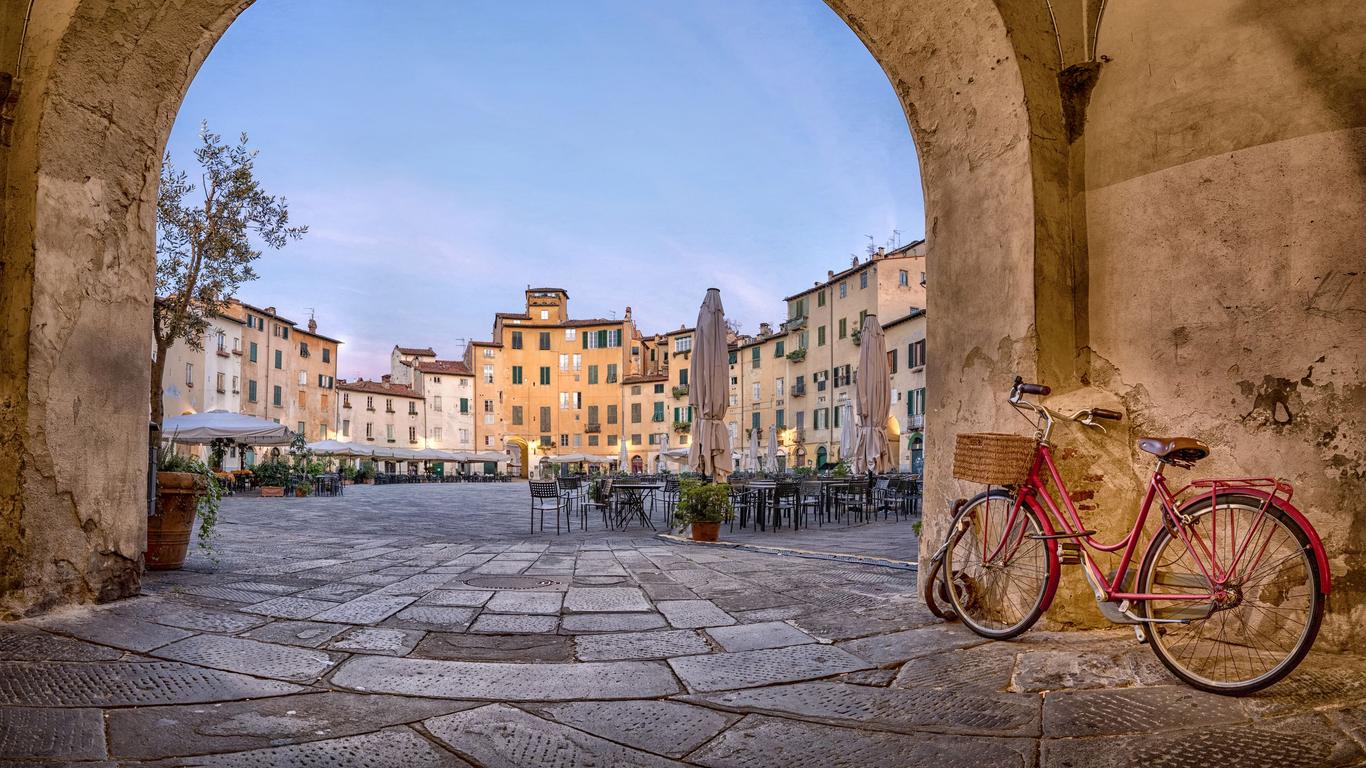Sprawling on the south bank of the Serchio River, Lucca is a lively Tuscan city ringed by Renaissance-era walls. Originally founded by the Etruscans, it became a Roman colony in 180 BC and was an independent republic for around 500 years before being conquered by Napoleon. In addition to its striking cathedral, Lucca’s cobblestone streets are home to the birthplace of Giacomo Puccini.
Things to do in Lucca
In the heart of Lucca is the majestic Duomo, which was originally established in 1063 by Bishop Anselm. Marvel at the elaborate facade with its ornate portico and gaze up at the turreted tower that overlooks Piazza San Martino. Inside the cathedral are religious works of art by Domenico Ghirlandaio and Jacopo Tintoretto.
Surrounding Lucca’s historic centre are beautifully preserved Renaissance walls, which can be explored on foot or by bicycle. Several bastions dot the walls, including the Saint Martino Bulwark and the Porta San Pietro. Covering two of the bastions are the gardens of Orto Botanico Comunale di Lucca, which feature historic greenhouses, landscaped flower beds and picturesque ponds.
Opera lovers shouldn’t miss a visit to Casa Natale di Giacomo Puccini, the birthplace of the renowned Italian composer. Guided tours are available of the property where period furnishings, letters and personal artefacts are displayed. Learn about Puccini’s childhood in Lucca before leaving to study in Milan and see the Steinway & Sons piano on which he composed “Turandot”. In neighbouring Piazza Cittadella is a bronze monument of Giacomo Puccini.
Getting around Lucca
Lucca is just over an hour’s drive from Florence and Florence Airport, which has flights to destinations across Europe. Trains connect to Lucca railway station and buses travel throughout Lucca. The centre of Lucca is ideally explored on foot.





